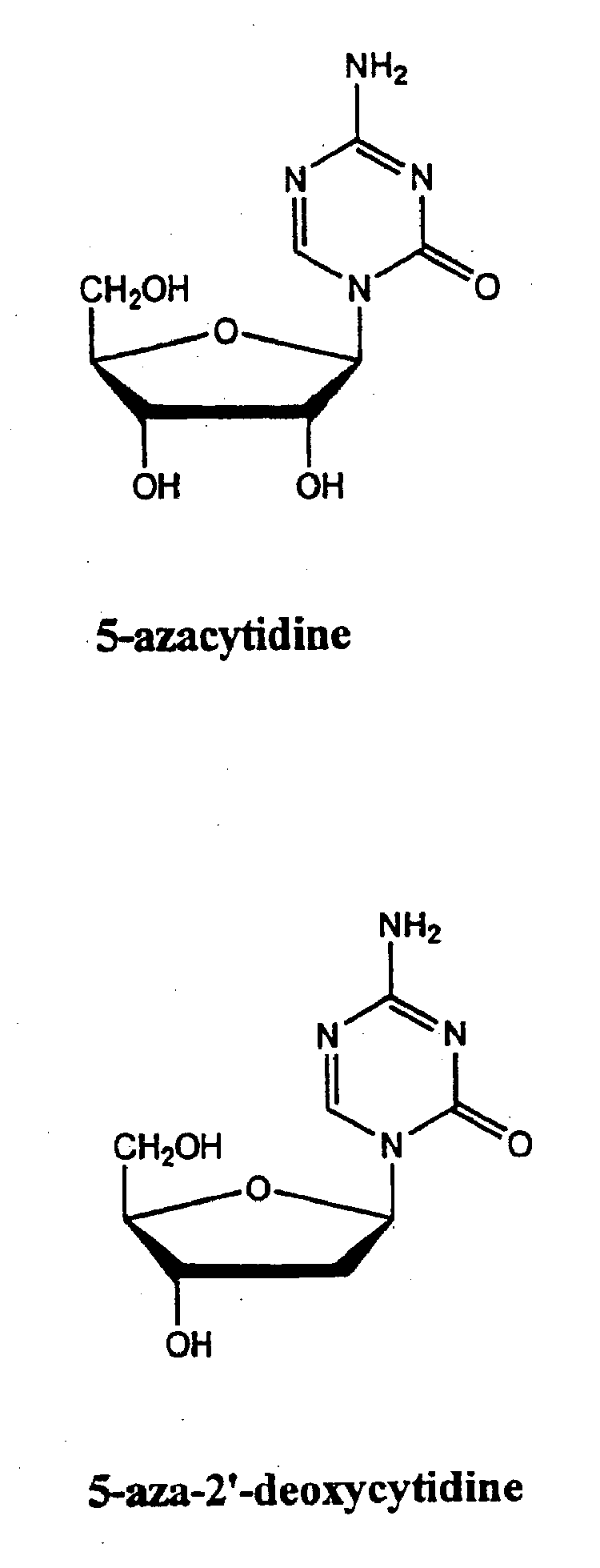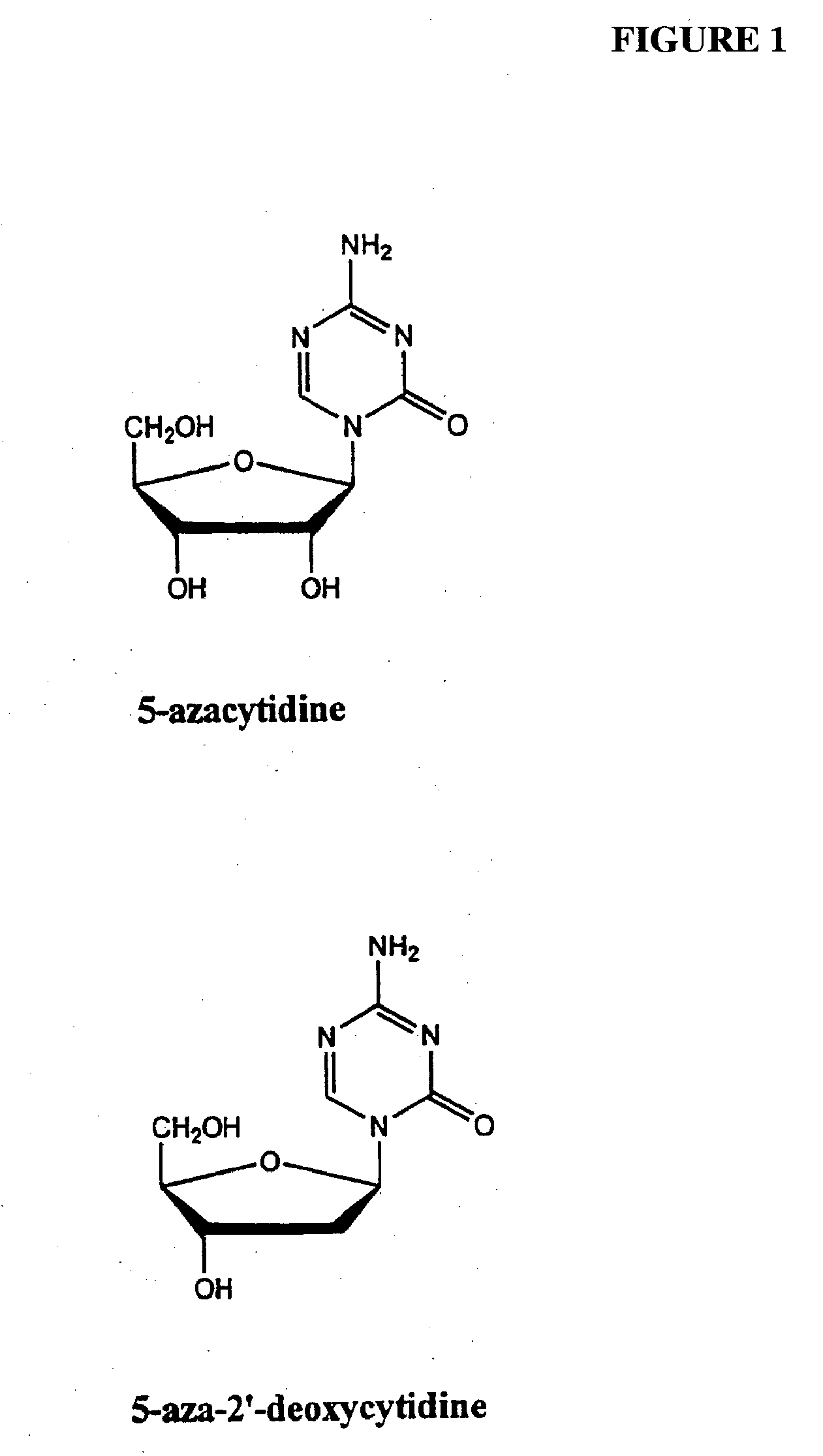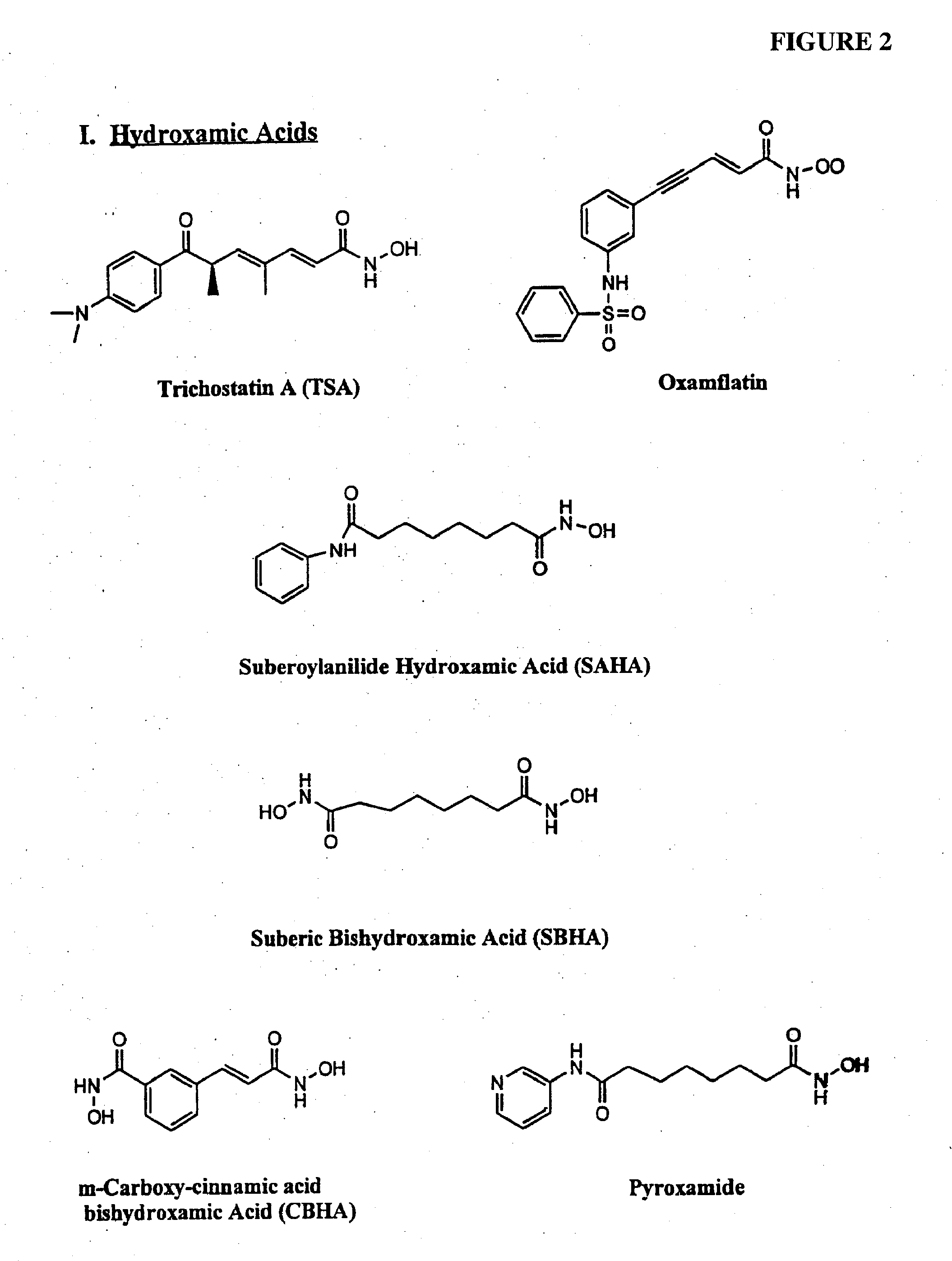Composition and method for treating neurological disorders
a neurological disorder and composition technology, applied in the field of composition and method for treating neurological disorders, can solve the problems of complex preventing and treating neurological disorders, limited efficacy and serious side effects of available pharmacological agents, and frustrated clinical management of numerous neurological disorders, and achieve superior clinical outcomes, effective treatment, and superior results in reestablishing gene expression
- Summary
- Abstract
- Description
- Claims
- Application Information
AI Technical Summary
Benefits of technology
Problems solved by technology
Method used
Image
Examples
example 1
[0103] In one example, a patient suffering from ALS is administered decitabine by intravenous injection at a dose rate of 10-50 mg / m2 per day for three days. On the fourth day of treatment the patient is administered an HDAC inhibitor such as depsipeptide or Trichostatin A (TSA), which have similar potency. The depsipeptide or TSA is administered at a dose of 5-20 mg / m2, preferably in a four-hour infusion. This four-day treatment course can be repeated multiple times or until EAAT2 expression is reestablished in the spine and muscle control regions in the brain.
example 2
[0104] In another example, a healthy patient or patient susceptible to a neurological disorder such as Alzheimer's disease is administered a prophylactic treatment comprising of decitabine. The decitabine is administered by intravenous injection at a dose rate of 5-20 mg / m2 per day for 1-4 days. The patient can also be administered an HDAC inhibitor simultaneously or after the decitabine treatment. The HDAC inhibitor can be phenylbutyrate and administered at a dose ranging from 250 to 1000 mg / m2. This treatment plan can be repeated multiple times or until expression of the gene of interest (e.g., GAP-43, growth inhibitory factor metallothionein-3, and muscarinic-4 receptor subtype) are reestablished.
example 3
[0105] In another example, a patient suffering from Parkinson's disease is administered decitabine by subcutaneously at a dose rate of decitabine alone, or in combination with an HDAC inhibitor. Decitabine is administered alone at a dose of 1-100 mg / m2 per day for 1-4 days. Afterwards a patient is reevaluated, using for example, blood work and / or biopsy to determine dopamine levels and / or MRI to evaluate treatment efficacy. An HDAC inhibitor is administered, optionally, on day four of treatment plan or subsequent to the decitabine treatment if dopamine levels remain below normal or if PD symptoms persist. The treatment plan (decitabine treatment followed by HDAC inhibitor treatment) can be repeated several times or as necessary.
PUM
| Property | Measurement | Unit |
|---|---|---|
| neurological disorder | aaaaa | aaaaa |
| Neurological Disorders | aaaaa | aaaaa |
| antioxidant properties | aaaaa | aaaaa |
Abstract
Description
Claims
Application Information
 Login to View More
Login to View More - R&D
- Intellectual Property
- Life Sciences
- Materials
- Tech Scout
- Unparalleled Data Quality
- Higher Quality Content
- 60% Fewer Hallucinations
Browse by: Latest US Patents, China's latest patents, Technical Efficacy Thesaurus, Application Domain, Technology Topic, Popular Technical Reports.
© 2025 PatSnap. All rights reserved.Legal|Privacy policy|Modern Slavery Act Transparency Statement|Sitemap|About US| Contact US: help@patsnap.com



